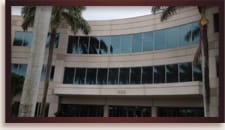Latest Articles
Upcoming Changes in Construction Law
Part I: Lessor Liability for Lessee Incurred Liens
In the last legislative session, several changes were made to the statutes relating to construction liens and bonds which take effect on October 1, 2012. Among them is a change to section 713.10, which concerns liens pursuant to improvements ordered by a tenant.
Background
Generally, a construction lien extends only to the right, title, and interest of the person who contracts for the improvements. In the case of the improvements of leased space, the Florida legislature has provided that a contractor, subcontractor, sub-subcontractor, or material supplier’s lien will reach not only the lessee’s interest but also the lessor’s interest in the property if the improvements are made in accordance with an agreement between the contracting lessee and the lessor. It has been held that the improvements must be vital to the continuation of the lease, i.e., that the lessor required the lessee to make improvements to the leased space, in order for the lessor’s interest in the property to be potentially subject to a construction lien.
Even if the improvements were vital to the lease, the law has provided that lessors can avoid construction liens if the subject lease expressly prohibits liens from attaching to the lessor’s interest and the lessor records in the public records an appropriate document containing the specific language from the lease that prohibits liens. While this may seem easy, strict compliance is required.
In 2010, there was an appellate case where the leased property involved was a unit in a shopping center. The landlord’s leases with the various tenants had provisions barring construction liens, but the language of prohibition varied across leases. Indeed, the appellate court found that the lien prohibition language in the lease for the unit against which the subject construction lien was being asserted was significantly different from the language in the notice recorded in the public records. As a result, the appellate court held that the notice was defective and did not serve to bar the contractor’s lien against the landlord’s interest in the property.
2012 Amendment
The 2012 legislature amended section 713.10 adds a provision stating that a notice “that is consistent with” the provision allowing a notice to be recorded will effectively prohibit liens against a lessor’s interest in the property for improvements made by a lessee “even if other leases for premises on the parcel do not expressly prohibit liens or if provisions of each lease restricting the application of liens are not identical.”
Commentary
The 2012 amendment appears to be an attempt to overturn the 2010 case discussed above by making effective a lessor’s recorded notice of prohibition of liens, regardless of whether the language in the notice is at variance with the prohibition language in the lease or whether leases on other parcels on the property contain lease prohibitions. The amendment appears to be less than ideal for effecting its apparent purpose because, in order to gain the flexibility that the amendment affords, it requires that the lessor’s notice be “consistent with” the existing statutory provision allowing notices to be recorded and which requires the notice to include “the specific language contained in the various leases prohibiting such [lien] liability.” Arguably, the amendment is meaningless.
It may also be noted that the amendment applies to only one of the types of documents – a notice – that a lessor can record to effect a lease provision prohibiting liens. The other types of documents that the statute allows to be recorded for this purpose are the lease itself or a short form or memorandum of the lease, but the amendment makes no provision for any variances between the recorded document and “the lease”. Presumably, however, an issue would only arise with respect to these documents if the authenticity of one of them in a particular case is called into question.
Although a description is beyond the scope of this Update, both lessors and would-be-lienors should be aware that other provisions in Florida’s Construction Lien Law exist that can easily affect their rights regarding liens arising from lessee-made improvements.
Anyone seeking further information may contact the Board Certified Construction lawyers at Malka & Kravitz, P.A. for a free consultation.







